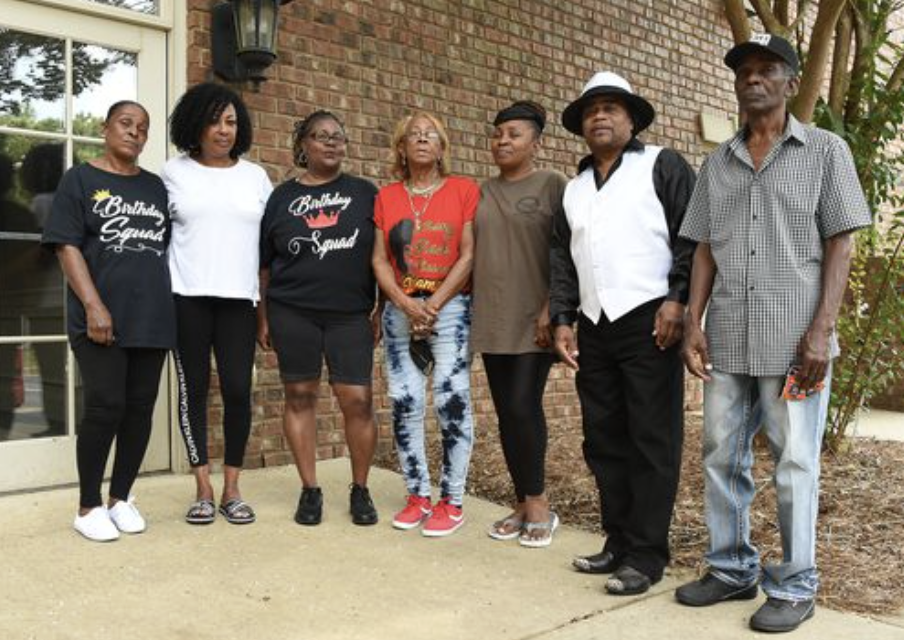By Ashley Remkus
A federal judge in Montgomery denied a request to release body camera video of a police dog biting and killing a man, citing the upcoming civil trial and the “graphic nature and emotional impact” of the footage.
In an opinion issued last week, U.S. Magistrate Judge Jerusha Adams wrote that if the footage is released ahead of trial, it could unfairly prejudice potential jurors. She denied a request from the family of Joseph Pettaway to remove the confidentiality designation from the videos.
“Due to its graphic nature and emotional impact, the footage from the police body cameras cannot be unseen, ignored, or easily set aside,” Judge Adams wrote.
Pettaway’s family is suing the city of Montgomery, former police Chief Ernest Finley and Nicholas Barber, the former K-9 handler who released a police dog to bite Pettaway on July 8, 2018.
Chip Nix, an attorney for the Pettaway family, said they will ask U.S. District Judge Emily C. Marks, the chief judge of the federal court in Montgomery, to review the decision to keep the video confidential.
“The family believes sincerely that the people of Montgomery should see what happened,” Nix told AL.com this week.
“We think it’s the public’s right to see what happened,” he added. “We are pursuing the family’s wishes. That’s our job and we will continue to pursue it.”
In her opinion, Judge Adams noted that the lawsuit is set to go to trial early next year in a courtroom open to the public.
“Having seriously considered the facts and circumstances, the Court concludes that, due to the danger of unfair prejudice, allowing public access to the body cam footage at this sensitive time in the proceedings – a little over two months before the case is set to be tried – is significantly likely to inappropriately impact the ability of the Court and the parties to empanel a jury in this case.”
In July of 2018, Montgomery police said they got a call about a possible burglary. They found Pettaway, a 51-year-old Black man, sleeping in an otherwise unoccupied house. Pettaway’s family said he had been helping fix up the small home and sometimes slept there. Pettaway bled to death after a police dog named Niko bit his thigh and tore his femoral artery.
It took two years for the family’s lawyers to see the bodycam video. After obtaining copies, the lawyers described the footage in a court filing, saying the bite lasted nearly two minutes and the handler struggled to get the dog to release Pettaway.
Pettaway bled as police dragged him out of the house and onto the sidewalk to wait for an ambulance, according to the filing. He died at the hospital.
Barber, the K-9 handler, testified in a deposition that he had to choke the dog until it could not breathe and was nearly unconscious in order to get Niko to let go of Pettaway’s groin.
About five minutes after the bite ended, the filing says, another officer outside asked Barber, “Did ya’ get a bite?” Barber responded, “Sure did, heh, heh (chuckling).” The officer asked: “Are you serious?” Barber replied. “F**k yeah.”
The lawsuit accuses Barber of excessive force and also alleges that the city is liable because it had a policy prohibiting officers from rendering first aid that could have saved Pettaway’s life while he was lying on the sidewalk.
Lawyers for Barber and the city have asked the court to throw out the lawsuit.
Winston Sheehan, an attorney for the city and Barber, the former Montgomery officer, declined to comment on pending litigation.
Judge Marks will hear oral arguments next month as both sides ask her to grant their motions for summary judgment, which happens when a judge decides a case in favor of one party against another without a full trial.
While the family’s lawyers have previously asked the court to make the footage public, they said they tried again this time because the court previously suggested that it would be more open to consideration of releasing the videos after the plaintiffs and defendants in the lawsuit completed depositions and filed their final motions for summary judgment.











